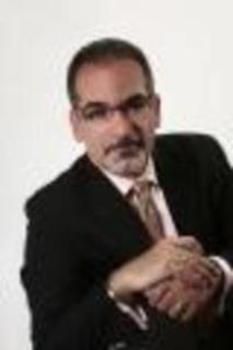This text-based course is a written transcript of the course, "Cultural Sensitivity and Dysphagia: A Good Blend?", presented by Luis Riquelme on March 14, 2011.
Click Here to View Supplemental Handouts
This text is being provided in a rough draft format. Communication Access Real time Translation (CART) is provided in order to facilitate communication accessibility and may not be a totally verbatim record of the proceedings.
>> Amy Natho: Welcome to the SpeechPathlogy.com e learning expert seminar entitled "Cultural Sensitivity and Dysphagia: A Good Blend?" My name is Amy Natho and I'll be your moderator for this course. It is an honor to introduce our speaker for today. Luis F. Riquelme is currently employed as Assistant Professor in the Department of Speech Language Pathology at New York Medical College in Valhalla, New York and is Director of the Center for Swallowing and Speech Language Pathology at New York Methodist Hospital in Brooklyn, New York. He obtained his B.A. from LIU/Brooklyn and M.S. from Columbia University.
He is currently a Ph.D. candidate at The Graduate Center of the City University of New York. Luis has presented locally and nationally on topics related to dysphagia, quality improvement, multiculturalism, bilingualism and leadership. He has also authored several articles on cultural competence, community education with healthy elders, and on professional issues. Thank you, Luis, for being here today to share your expertise with us.
[Applause]
>> Luis Riquelme: Thank you very much, Amy. Good afternoon or good morning to those of you in the audience. This is certainly an interesting process, since I'm in my office at the university with a computer as most of you are. That introduction sounded really nice, but the bottom line is that I'm a clinician as most of the audience is as well. That means we're also educators and mentors. I hope that today you will feel comfortable asking questions. I will try to answer those as I'm speaking; otherwise, we may hold some of those questions to the end. But please make sure this is user friendly enough so that you have your questions answered. If something pops up afterwards, please feel free to e mail me or e mail the folks at Speechpathology.com, whom I thank for this opportunity and I also thank you, Amy, for moderating this session. So let's get rolling.
Overview
Moving on to our first slide, let's talk a little bit about what we'll do in this hour. What I would like to share with you is first, my belief system. When we're talking about cultural sensitivity and we're talking about it in the context of dysphagia, many times folks think only about food preferences. But the reality is that we need to go beyond that. The area of dysphagia is what I consider a very delicate one and one where we don't pay enough attention to all the cultural variables that we'll be talking about. I'm coming from the premise that we all have a culture or many cultures and we'll define that in a little while. It is important to think of ourselves as speech language pathologists, audiologists, as folks that are trying to become culturally competent. That really is a lifelong process, because it is one of learning on a regular basis. Everyone should be treated in a culturally sensitive environment without any barriers to service for the diagnosis or treatment of, in this case, swallowing disorders. So that is where I'm coming from, and I hope it is why you have an interest in this topic.
We're just starting to explore this whole concept of culture and how it impacts our evaluation and treatment of folks with swallowing disorders. In addition to some of the cultural variables, we'll talk a little bit about advanced directives and some of the bioethics of tube feeding. As we define culture, you'll understand where those come in.
Introduction
Moving on to the next slide, why this whole concept of culture and dysphagia, and how is it relevant to us? My concept is that it is relevant to all of us regardless of our own cultural mindset. Let's think about a few things. One would be right now, the number of children with dysphagia that are being mainstreamed into our school systems. I think we also need to think about the increased diversity of cultures. In our caseloads, again, whether children or adults, there is the impact of life saving technologies in our practices as clinicians and how they influence caregiver decision making. While it sounds wonderful that there are all these life saving techniques, the truth is that many times dysphagia is a symptom for this population. We have to understanding those aspects and how that ties in with caregivers and families.
Cultural Sensitivity and Dysphagia: A Good Blend?
March 21, 2011
Share:
